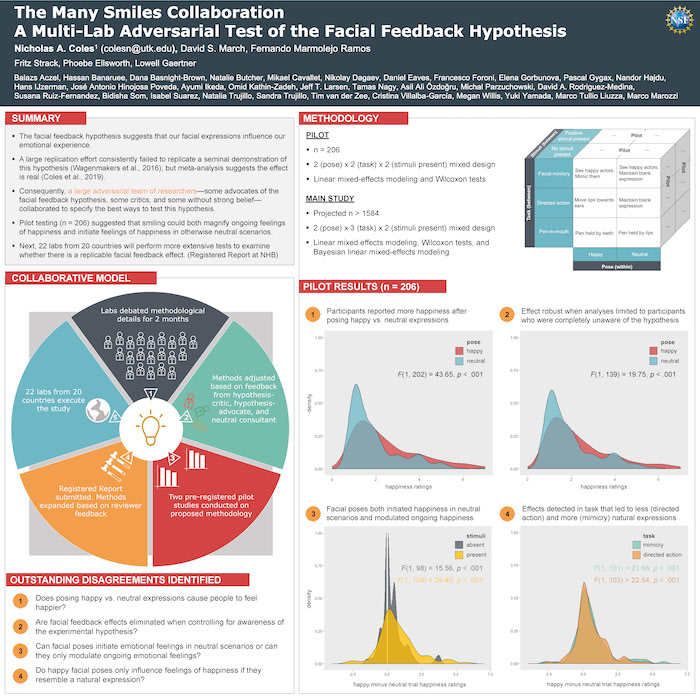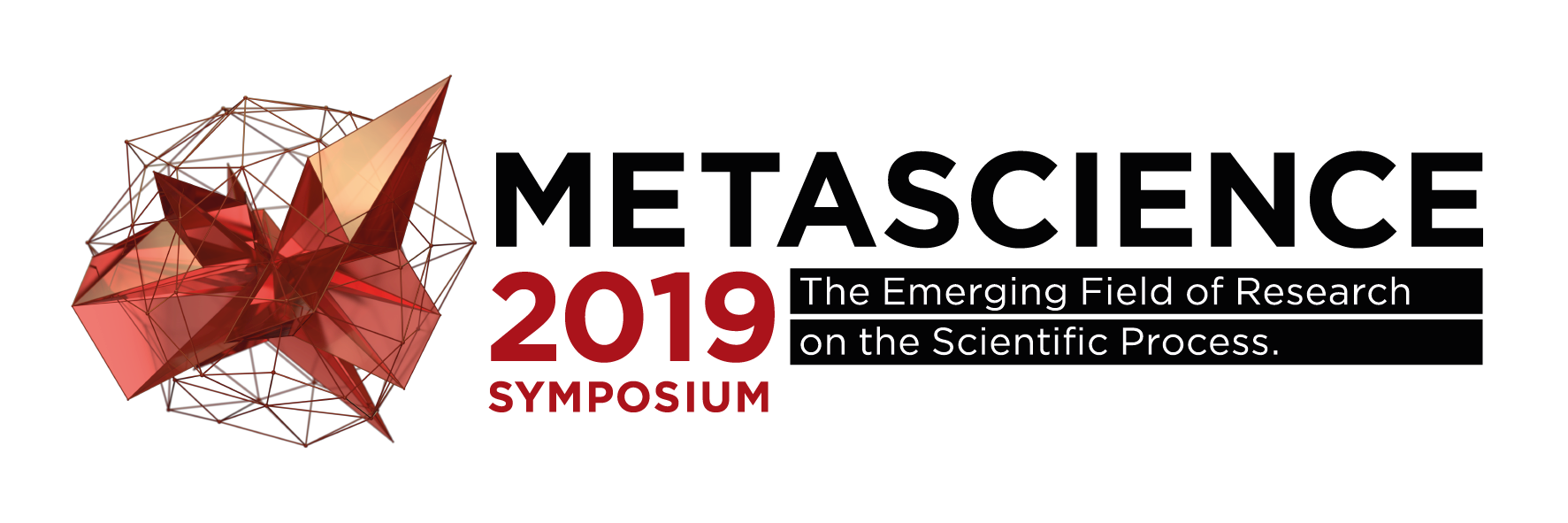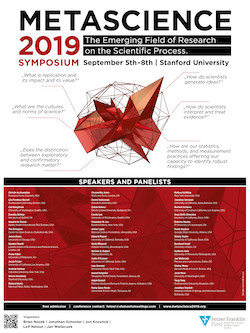Nicholas A. Coles
University of Tennessee, Knoxville
Co-Authors: David S. March, Fernando Marmolejo Ramos, Hassan Banaruee, Natalie Butcher, Mikael Cavallet, Nikolay Dagaev, Daniel Eaves, Francesco Foroni, Elena Gorbunova, Pascal Gygax, Hans IJzerman, José Antonio Hinojosa Poveda, Omid Kathin-Zadeh, Jeff T. Larsen, Asil Ali Özdoğru, Michal Parzuchowski, David A. Rodriguez-Medina, Susana Ruiz-Fernandez, Bidisha Som, Isabel Suarez, Natalia Trujillo, Sandra Trujillo, Tim van der Zee, Cristina Villalba-García, Megan Willis, Yuki Yamada, Balazs Aczel, Nandor Hajdu, Dana Basnight-Brown, Phoebe Ellsworth, Lowell Gaertner, Fritz Strack, Marco Tullio Liuzza, Marco Marozzi
Abstract: The Many Smiles Collaboration: A Multi-Lab Foundational Test of the Facial Feedback Hypothesis
The facial feedback hypothesis suggests that an individual’s subjective experience of emotion is influenced by their own facial expressions. Researchers, however, currently face conflicting narratives about whether this hypothesis is valid. A large replication effort consistently failed to replicate a seminal demonstration of the facial feedback hypothesis, but meta-analysis suggests the effect is real. To address this uncertainty, a large team of researchers—some advocates of the facial feedback hypothesis, some critics, and some without strong belief—collaborated to specify the best ways to test this hypothesis. Two pilot tests of the agreed-upon methodology suggested that smiling could both magnify ongoing feelings of happiness and initiate feelings of happiness in otherwise non-emotional scenarios. Next, 22 labs from 20 countries will examine whether these findings can be replicated.
Poster: The Many Smiles Collaboration: A Multi-Lab Foundational Test of the Facial Feedback Hypothesis





